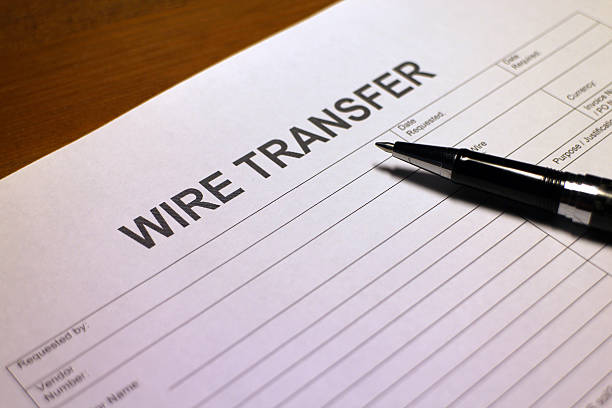a. Outgoing Transfer Fees: When you initiate a bank transfer to another account within the same country, your bank may charge you a fee for this service. The fee amount varies from bank to bank and can range from a few dollars to no fee at all, depending on your account type and the transfer method.
b. Incoming Transfer Fees: Some banks may charge a fee to receive incoming transfers. However, this is less common, and many banks do not impose fees on incoming domestic transfers.
2. International Transfer Fees
a. Outgoing Transfer Fees: International bank transfers typically come with higher fees compared to domestic transfers. These fees can include:
Wire Transfer Fees: If you're using a wire transfer service for an international transaction, expect to pay a fee. The fee can vary significantly, depending on your bank and the specific service.
Currency Conversion Fees: When sending money to a foreign country, you may incur currency conversion fees if the funds need to be converted into the recipient's currency.
b. Incoming Transfer Fees: In some cases, the recipient's bank may charge fees for receiving international transfers. These fees vary by bank and country.
3. Third-Party Transfer Services
If you're using third-party transfer services like PayPal, Venmo, or Cash App, they may charge fees for certain types of transfers. These fees can include processing fees, currency conversion fees, and withdrawal fees when moving funds from the platform to your bank account.
4. Expedited Transfer Fees
Some banks offer expedited transfer services that allow you to send money more quickly, often for an additional fee. These services can be beneficial when time is of the essence, but they typically come at a higher cost.
Factors Affecting Transfer Fees
Several factors can influence the cost of bank transfer fees:
Type of Transfer: As mentioned earlier, domestic transfers are generally less expensive than international transfers. Wire transfers and expedited transfers are usually associated with higher fees.
Banks Involved: Different banks have different fee structures. It's essential to check with your bank to understand their specific fee policies for various types of transfers.
Transfer Method: The method you use to initiate the transfer can impact the fees. Online transfers may have lower fees compared to in-person transactions at a bank branch.
Recipient's Bank: For international transfers, the recipient's bank may charge fees for receiving the funds.
Reducing Transfer Fees
While it's challenging to completely avoid transfer fees, there are strategies you can employ to reduce them:
Choose the Right Account: Many banks offer accounts with reduced or waived transfer fees as part of their account packages. Look for accounts that align with your transfer needs.
Shop Around: If you frequently make international transfers, compare the fees and exchange rates offered by different banks and money transfer services to find the most cost-effective option.
Use Online Banking: Many banks offer lower fees for online transactions compared to in-person transactions at a branch.
Consider Alternative Transfer Methods: Explore alternative payment methods like peer-to-peer (P2P) apps, which may offer lower fees for certain types of transfers.
In Conclusion
While there are fees associated with some bank transfers, the amount you pay depends on various factors, including the type of transfer, the banks involved, and whether the transfer is domestic or international. Understanding these factors and exploring cost-saving options can help you minimize the impact of transfer fees on your financial transactions. Always check with your bank and review the terms and conditions before initiating any bank transfer to ensure you are aware of the associated fees.
Frequently asked questions (FAQs) for bank transfers




